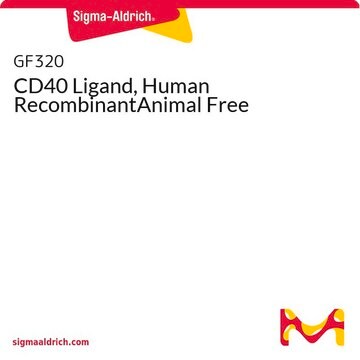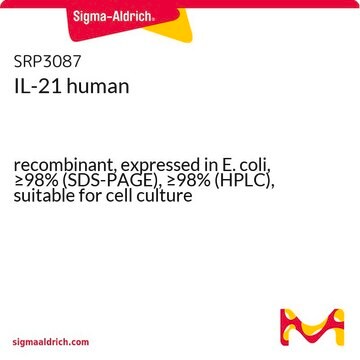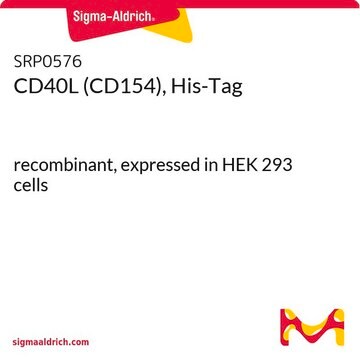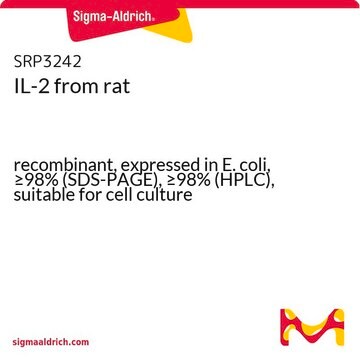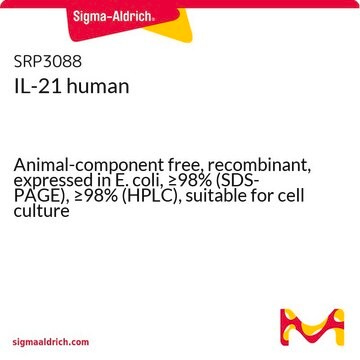5093
CD40 human
recombinant, expressed in E. coli, 0.5 mg protein/mL
About This Item
Recommended Products
biological source
human
recombinant
expressed in E. coli
description
0.1 mg of recombinant human CD40 in 20 mM Tris-HCl buffer, containing NaCl, KCl, EDTA, L-arginine, DTT and glycerol.
sterility
Filtered sterilized solution
Assay
≥90% (SDS-PAGE)
form
liquid
packaging
pkg of 100 μg
concentration
0.5 mg protein/mL
technique(s)
cell culture | mammalian: suitable
accession no.
NP_690593
shipped in
dry ice
storage temp.
−20°C
Gene Information
human ... CD40LG(959)
Application
Use this procedure as a guideline to determine optimal coating conditions for the culture system of choice.
1.Thaw CD40 and dilute to desired concentration using serum-free medium or PBS. The final solution should be sufficiently dilute so the volume added covers the surface evenly (1-10 μg/well, 6 well plate).
2.Add appropriate amount of diluted material to culture surface.
3.Incubate at room temperature for approximately 1.5 hours.
4.Aspirate remaining material.
5.Rinse plates carefully with water and avoid scratching bottom surface of plates.
6.Plates are ready for use. They may also be stored at 2-8 °C damp or air dried if sterility is maintained.
Sequence
Preparation Note
Storage Class Code
10 - Combustible liquids
WGK
WGK 2
Flash Point(F)
Not applicable
Flash Point(C)
Not applicable
Choose from one of the most recent versions:
Certificates of Analysis (COA)
Don't see the Right Version?
If you require a particular version, you can look up a specific certificate by the Lot or Batch number.
Already Own This Product?
Find documentation for the products that you have recently purchased in the Document Library.
Our team of scientists has experience in all areas of research including Life Science, Material Science, Chemical Synthesis, Chromatography, Analytical and many others.
Contact Technical Service

